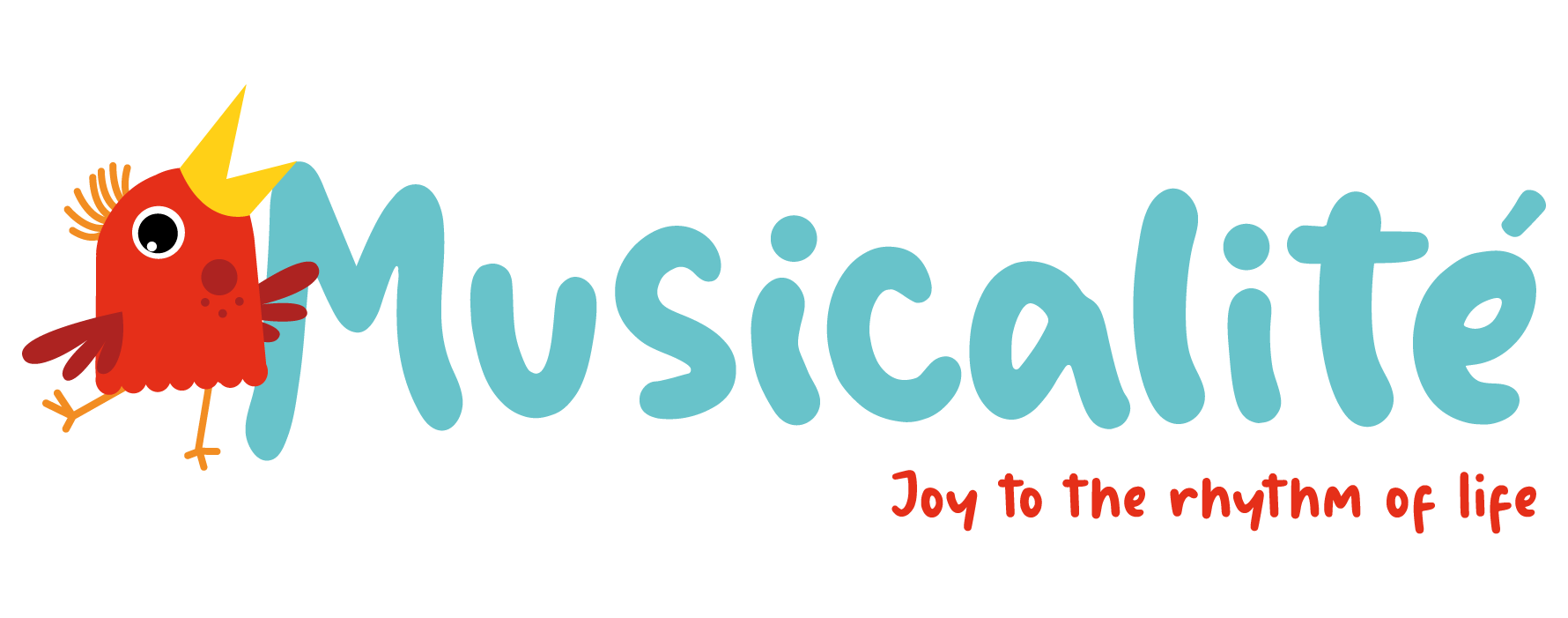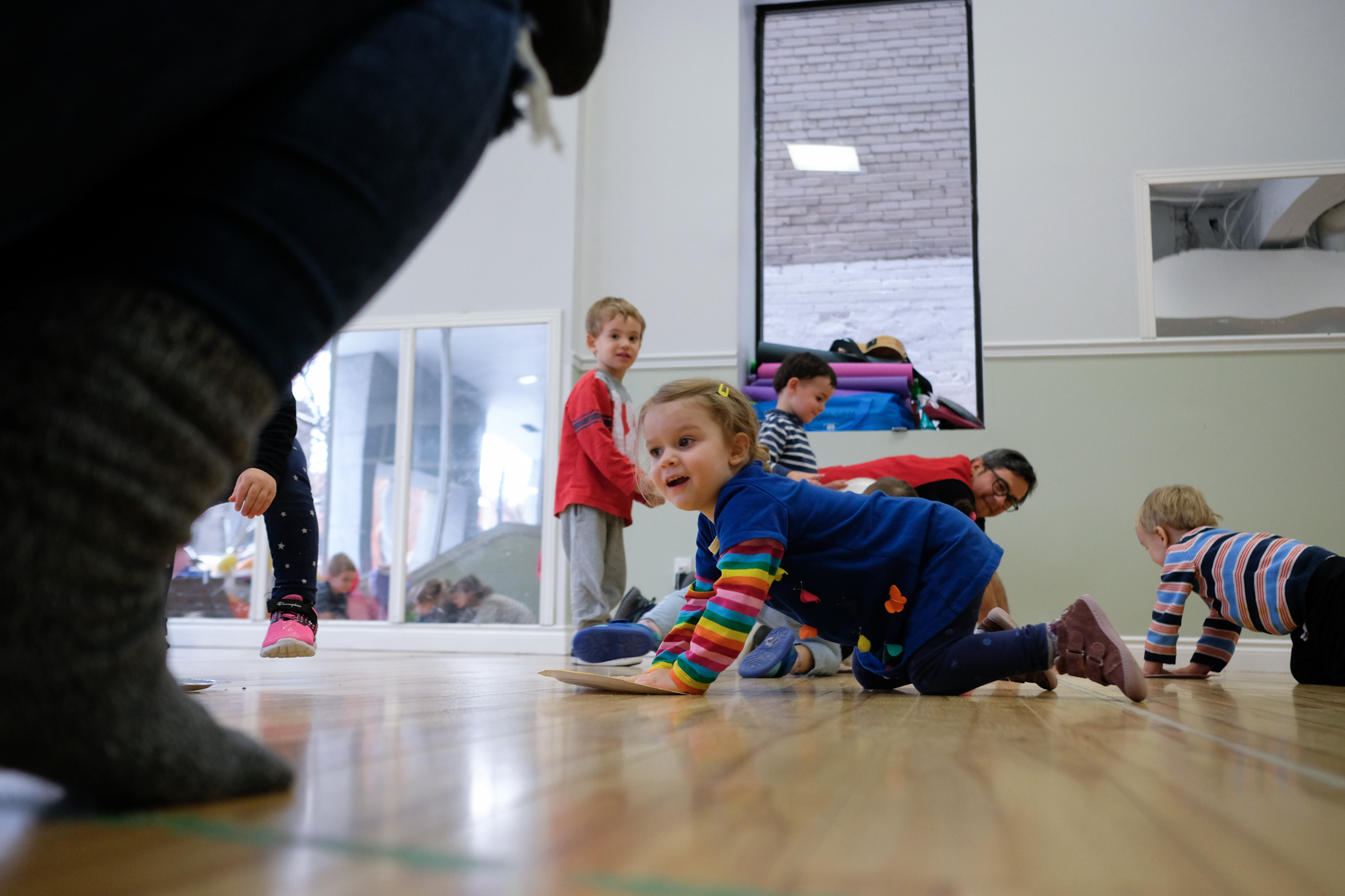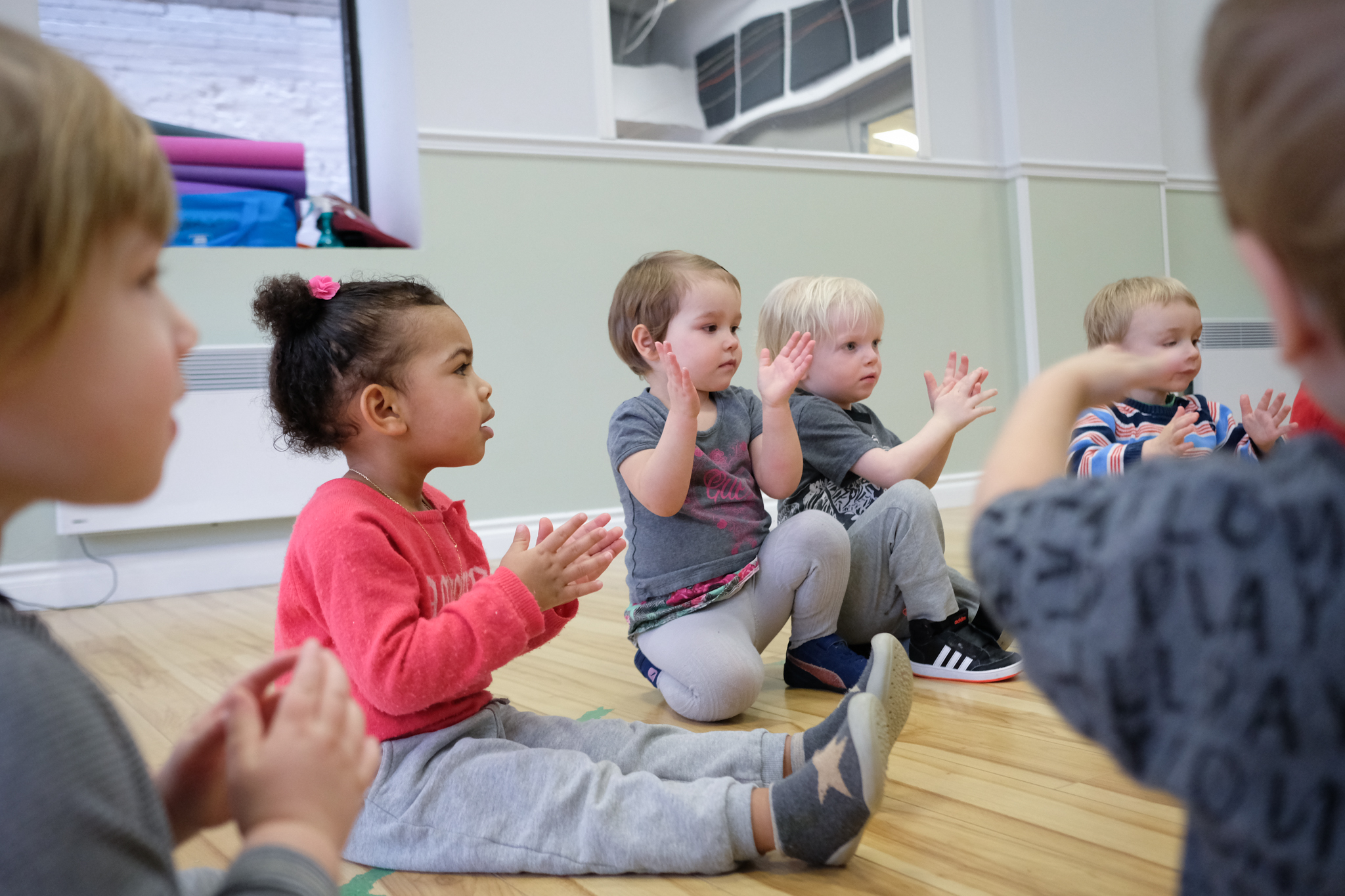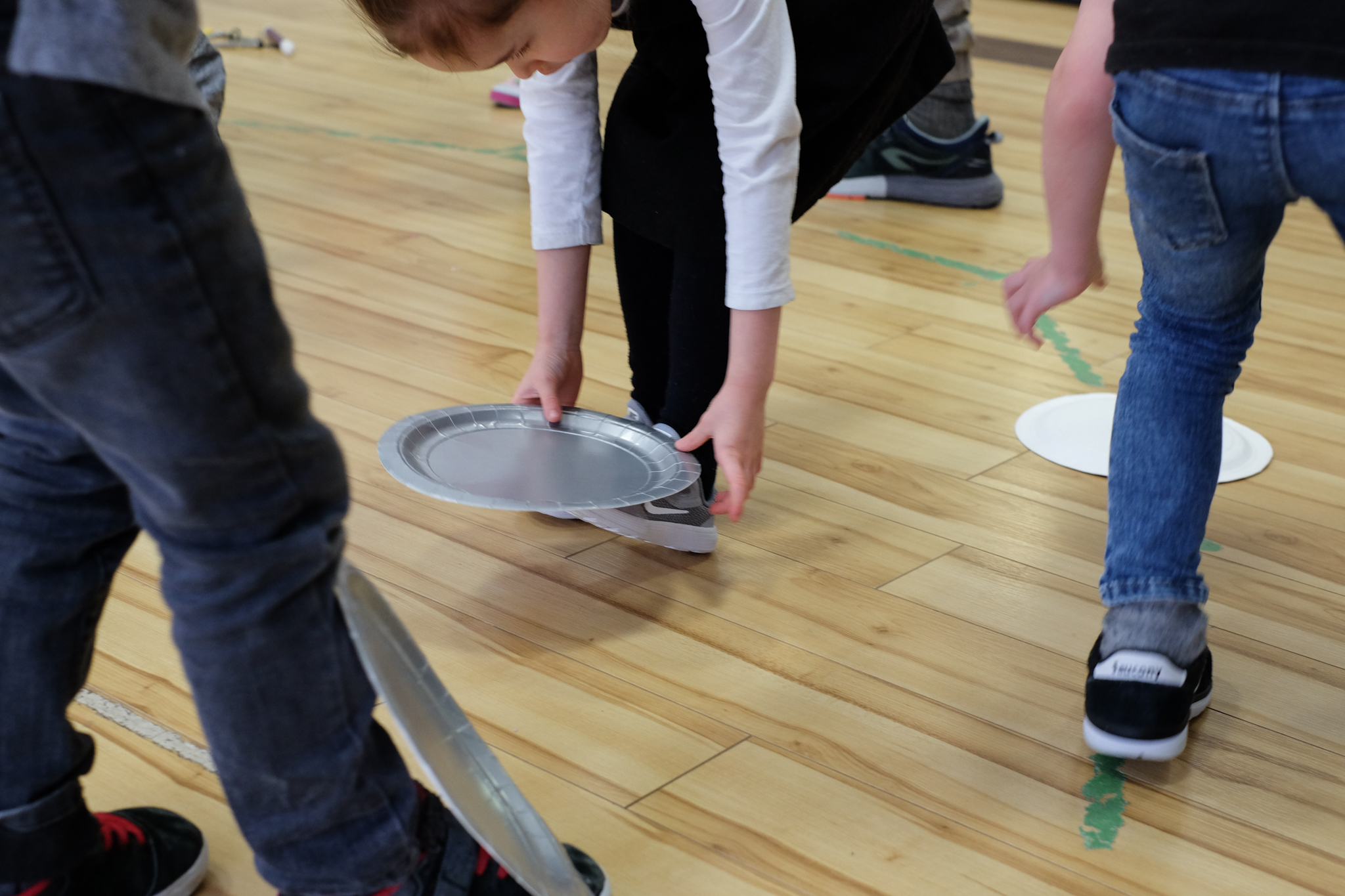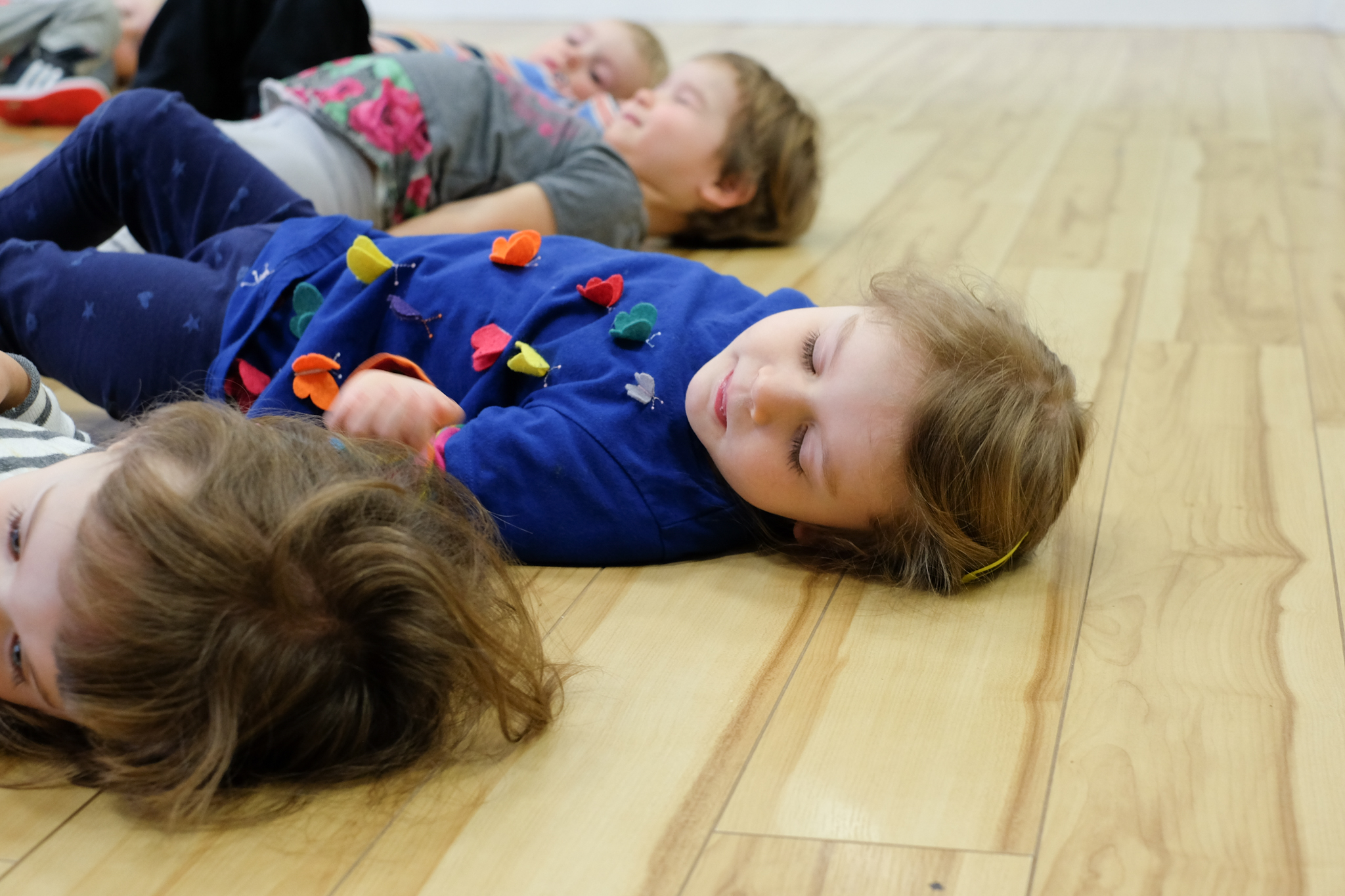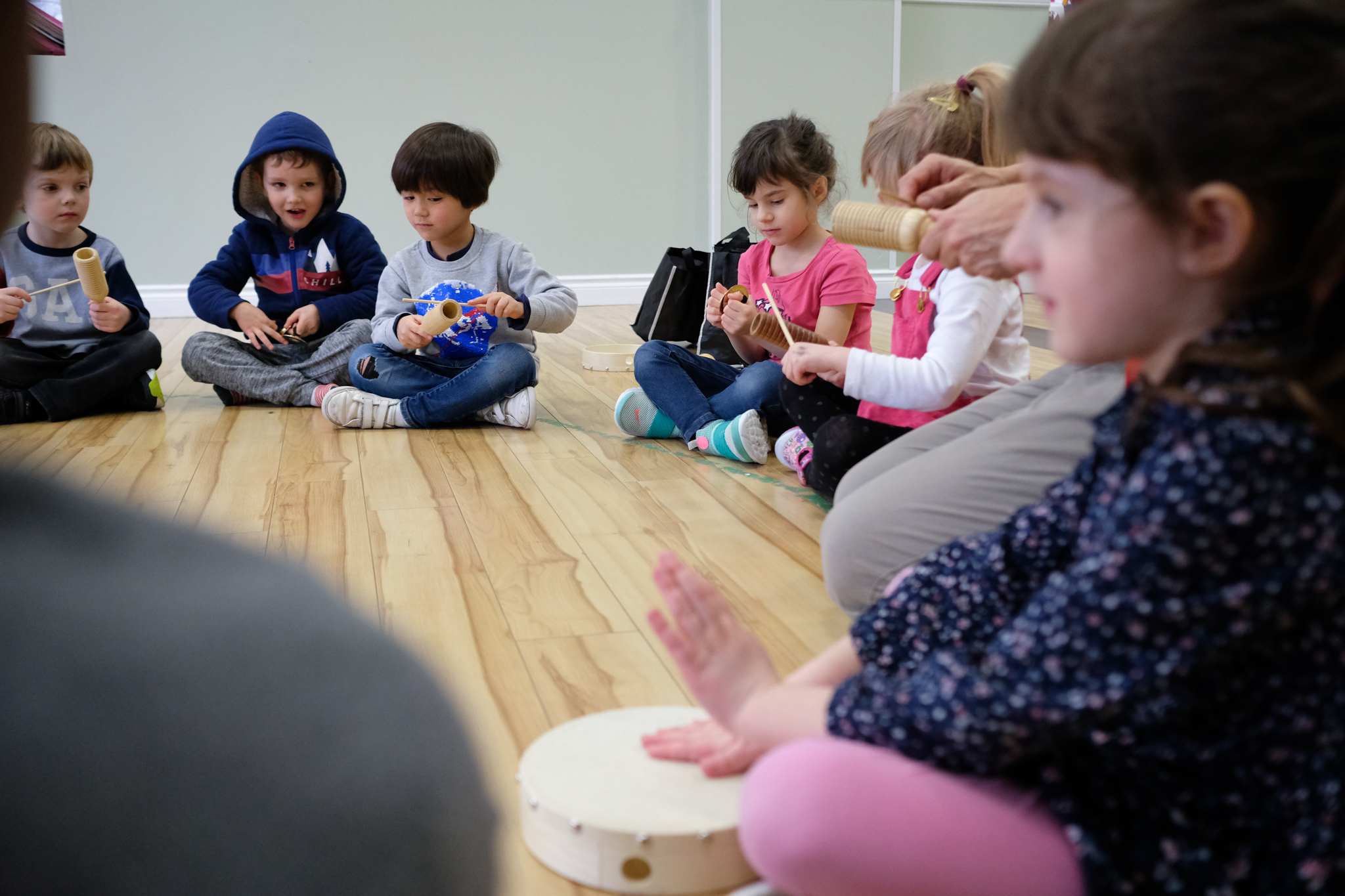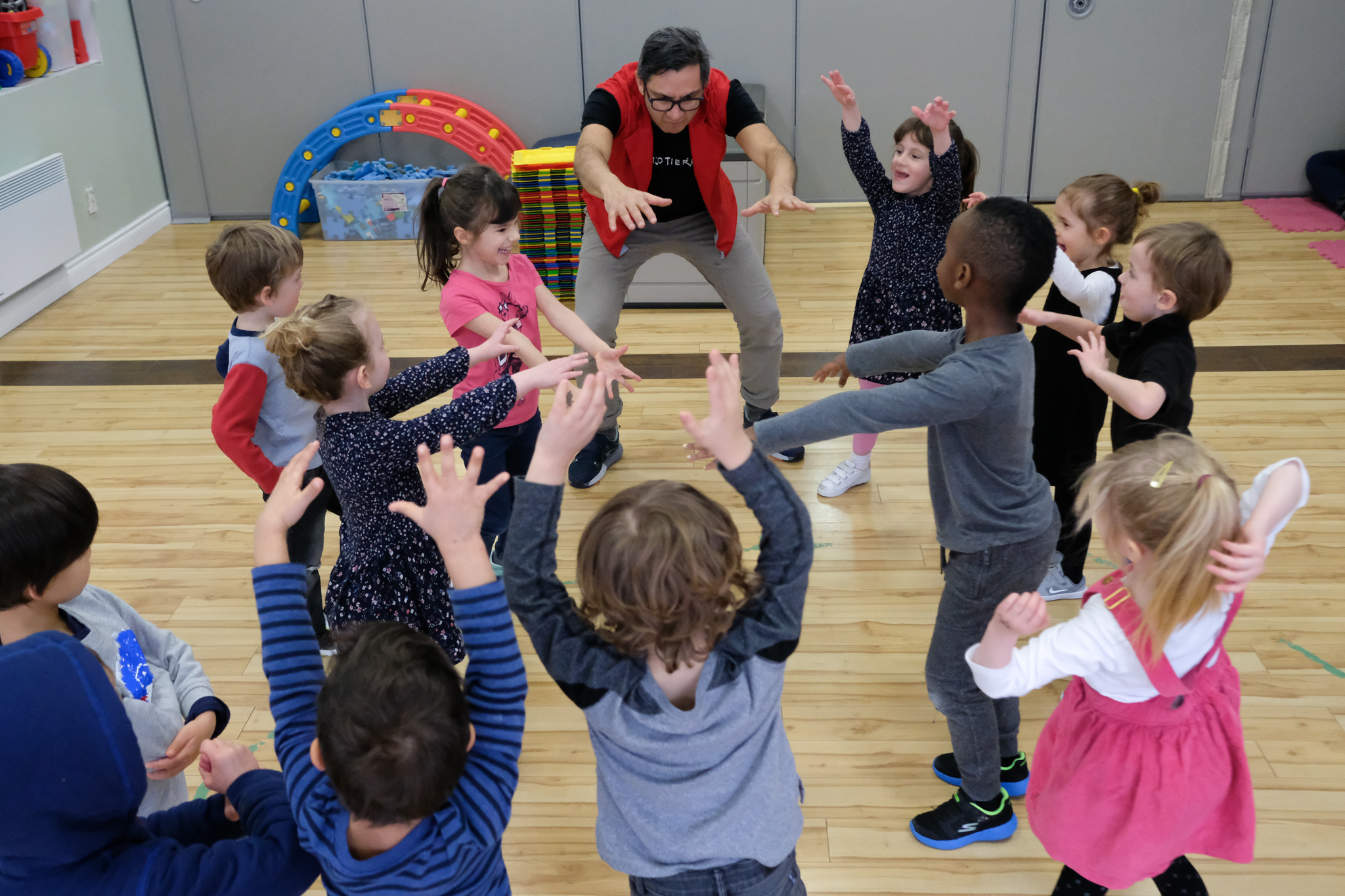Enhancing development through music
Music impacts the integral development of children in many ways. In fact, research has demonstrated that sustained practice of music during the first seven years of life favours brain plasticity and neuronal connectivity.
Moreover, exposure to music in early childhood enhances an appreciation and love of music which is a source of joy and inspiration throughout later childhood and the rest of the lifespan.
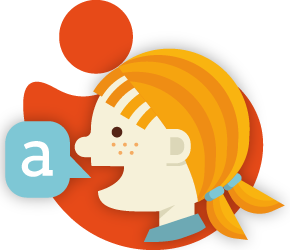
Langage
Music and language enter through the ear. Music stimulates the development of phonological awareness and word recognition. It nurtures auditory perception, phonological memory and the ability to listen carefully.
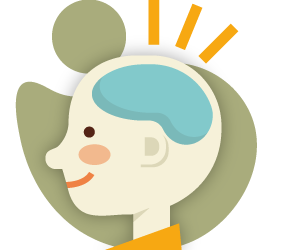
Cognitif Skills and Creativity
Learning music has an impact on the development of memory. Region of the left temporal lobe, associated with verbal memory, is more developed in children and adults who engage in music on a regular basis.
Attention and Listening
Listening coordinated with body movement nurtures concentration because children know they must pay attention in order to synchronize their movements. Furthermore, when children are active and creatively participating in the learning process, their interest is captivated. Children who are able to sustain attention for longer periods will learn more effectively once they reach school age.
Mathematics and Abstract Thought
Several studies indicate that various components of music contribute to a better ability of the concepts of fractions. Abstract thinking can be improved with the study of music in early childhood.
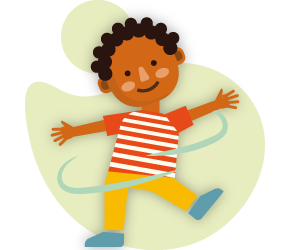
Motor Skills and Spatial Orientation
Learning music significantly impacts the acquisition of sensory and motor skills. Young musicians exhibit better planning and execution of movements. Furthermore, the association of movement with music stimulates the kinesthetic sense. Rhythmic activities positively impact body intelligence by improving coordination, balance, muscle tone and spatial orientation.
Body Memory
Movement is central to the learning process and it nurtures memory. Learning through movement allows the body's memory to help the brain learn and remember. The power of the body memory is far reaching and central to a life learning experience.

Expressiveness and Emotions
Expressing their emotions through movement and emulating the sounds they hear with their bodies helps children gain self-confidence and encourages free and fluid physicality. Encouraging children's expressiveness supports their developing emotional intelligence and favours successful interactions with peers.
Sense of Belonging and Adaptability
Singing and dancing together with friends and/or family allows children to share precious moments appreciating and celebrating music. These activities foster a sense of belonging.

Security and Self-Confidence
Understanding and responding to sensory stimulation is an essential aspect development in all children. It greatly impacts their ability to relate to and interact with their surroundings. The sens are stimulated by reflecting on the sounds and textures of various instruments, dancing to different rhythms, or role-playing. The maturité of the senses bring feelings of safety and security which positively impact behaviour and learning.
The earlier music is incorporated into children's learning, the better!
It paves the way for developing countless other skills throughout life.






